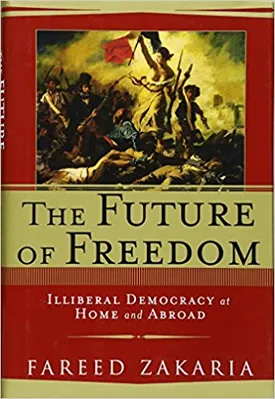Fareed Zakaria
Fareed Zakaria is one of the most influential public intellectuals and authors of the 21st century. His insights into global affairs and his thought-provoking book series, including The Post-American World and In Defense of a Liberal Education, have established him as a widely-recognized authority in international business, foreign policy, philosophy and history.
A native of India, Fareed Zakaria has earned degrees from Yale and Harvard Universities. After a short stint writing for Newsweek, he joined the editorial board of Newsweek International as an editor and the editor of the foreign affairs journal Foreign Affairs. He has written for some of the world’s most prominent publications, such as The New York Times, The Washington Post, The Wall Street Journal, The Financial Times and The New Yorker.
In addition to authoring several books on international relations, Fareed Zakaria is best known for his CNN program, “GPS with Fareed Zakaria,” as well as his columns on various news outlets. On “GPS,” Zakaria interviews prominent global figures and provides insight into pressing issues in global and international affairs.
Many of Fareed Zakaria’s most groundbreaking works are collections of essays that address significant economic, international, and cultural formations of the modern world. His 2008 book, The Post-American World, focuses on the steady shift of global power away from the United States, and the implications of this historic moment. Chaves (2009) claims that this book “provides an incisive overview of the political, economic, and technological forces transforming the global landscape and the implications for the United States.”
The Post-American World, in particular, was a bestseller and was a critically acclaimed book. Zakaria uses the theme of “Post-American world” to suggest that the United States should no longer assume that they are the superior nation as they had been in the past. Rather, he emphasizes the ubiquitous importance of economic, cultural, and technological exchange between nations and the implications that this has for how the U.S. should think about its place in the world, particularly in the 21st century.
Throughout his works, Zakaria argues that the most powerful nations in the world should be more interconnected and should to move away from unilateral decision making and towards collaborative diplomatic approaches, particularly in the context of foreign policy.
He has also recently released In Defense of a Liberal Education (2015), which is a collection of essays on the importance of a comprehensive and well-rounded education that emphasizes critical thinking, clear communication and the nimbleness and flexibility needed to adjust to a quickly changing world. Zakaria argues that the only way to successfully navigate the 21st century is to equip young generations with the skills necessary to learn and adapt.
No summary of Fareed Zakaria’s career is complete without mentioning his awards and accolades. He has twice been awarded the Dupont Award for excellence in journalism and he was also named one of the world’s 25 most influential people by TIME magazine.
Fareed Zakaria’s works has played an influential role in how modern societies frame and consider global politics and international affairs. His writings, as well as his television and public speaking engagements, have done much to inform and offer interesting perspectives on the current state of the world.

